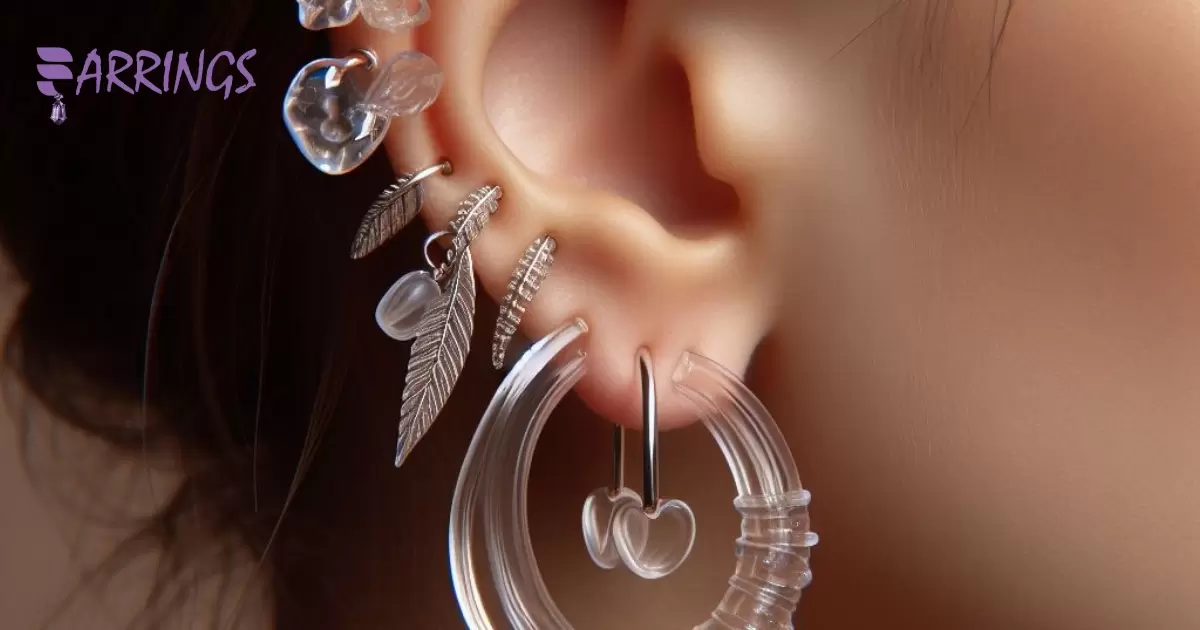Hypoallergenic cartilage earrings are designed to minimize allergic reactions. The earrings are made from cartilage, typically from animals like water buffalo, rather than common metal irritants like nickel. Their porous surface allows better air circulation to reduce irritation in sensitive ears.
Sensitive ears rejoice hypoallergenic cartilage earrings crafted from animal materials like buffalo avoid common irritants. Their porous design lets air flow, keeping ears happy. Durable but gentle, these lightweight earrings offer flair without pain. Say goodbye to red, itchy lobes.
Regular earrings cause problems for sensitive skin. Nickel, plastic, cheap metals often irritate. Trap moisture, bacteria, lead to infection. Hypoallergenic earrings fix this. Natural buffalo bone lets skin breathe via porous surface. Resists irritation, stops painful swelling. Smooth finish prevents buildup, inflammation.
Key Takeaway
- Choose hypoallergenic materials like titanium or surgical stainless steel for cartilage earrings.
- Consider higher purity gold (18k or 24k) and avoid nickel to prevent allergies.
- Flexible options like PTFE or BioPlast/BioFlex are suitable for sensitive skin.
- Read product details and consult professionals for personalized advice.
Common Allergens In Non-Hypoallergenic Cartilage Earrings
Non-hypoallergenic cartilage earrings often contain nickel, a common cause of skin irritations. This metal can trigger allergic reactions, leading to redness, itching, and discomfort. For a safer option, opt for 30mm hoop earrings, typically made from hypoallergenic materials to prevent skin issues.
Besides nickel, lower-quality metals in non-hypoallergenic earrings may contain alloys that worsen skin reactions. Cheaper materials, like certain types of brass, can be harsh on the skin, leading to irritation and inflammation. Choosing earrings without considering these factors can result in an unpleasant surprise for your ears, especially if you have a nickel sensitivity or other metal allergies.
How To Identify Hypoallergenic Cartilage Earrings?
| Feature to Check | Explanation |
| Material | Look for earrings made of hypoallergenic materials such as surgical stainless steel, titanium, or medical-grade plastic. Avoid nickel, which is a common allergen. |
| Nickel-Free | Ensure the earrings are explicitly labeled as nickel-free. Nickel can cause allergic reactions, so it’s important to choose earrings without this allergen. |
| Surgical Stainless Steel | Opt for earrings made of surgical stainless steel as it is a hypoallergenic material commonly used in medical implants. It is resistant to corrosion and less likely to cause skin reactions. |
To find hypoallergenic cartilage earrings, prioritize materials like titanium, surgical stainless steel, or niobium. Opt for 18k or 24k gold if you prefer gold earrings. Check for PTFE or BioPlast for a flexible and biocompatible option. Read product descriptions carefully to ensure suitability for sensitive skin, avoiding nickel content.
When uncertain, seek advice from a professional piercer or dermatologist. Always prioritize simplicity in design, as intricate details may involve additional materials that could trigger allergies. Comfort is key, so choose earrings that not only look good but also feel good for long-term wear.
Popular Hypoallergenic Materials For Cartilage Earrings
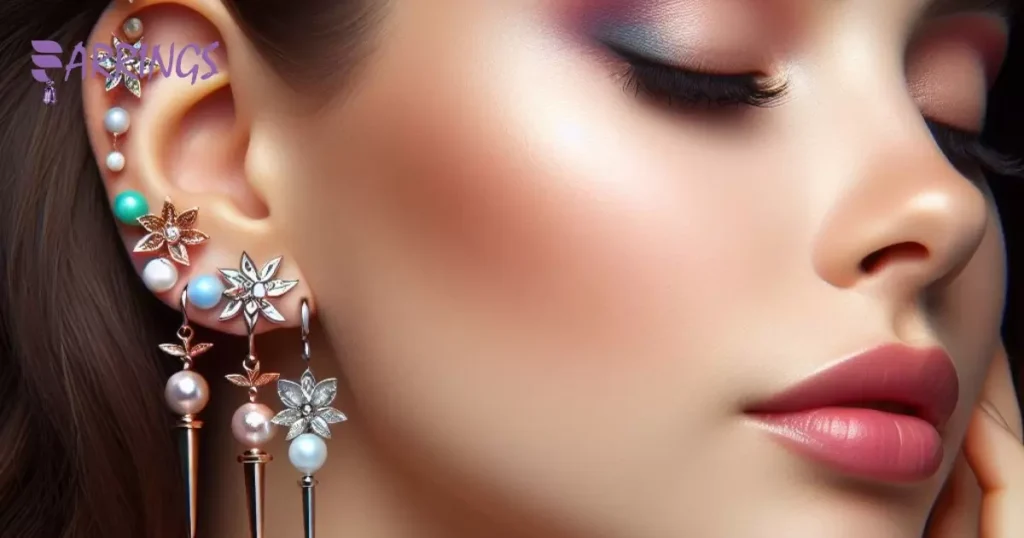
Looking for cartilage earrings that won’t irritate your skin? Titanium and surgical stainless steel are top choices. Titanium is light, strong, and won’t corrode perfect for sensitive ears. Surgical stainless steel is tough and doesn’t rust, making it a reliable option.
Another winner is niobium. This metal resists corrosion and suits those with metal allergies. If you’re a fan of gold, go for higher purity like 18k or 24k gold. Avoid lower karats to dodge potential allergens. Platinum is a precious metal that’s often hypoallergenic, durable, and doesn’t tarnish.
Hypoallergenic Cartilage Earring Options
Looking for hypoallergenic cartilage earrings? Opt for materials like titanium, surgical stainless steel, or niobium. These metals are kind to sensitive skin, reducing the risk of irritation. Platinum and higher purity gold, like 18k or 24k, are also safe choices.
Consider flexible options like PTFE, BioPlast, or BioFlex for added comfort. Check product descriptions for nickel content, a common allergen. When in doubt, consult a professional piercer or dermatologist for personalized advice on the best hypoallergenic option for you.
Benefits Of Choosing Hypoallergenic Materials For Cartilage Earrings
Choosing hypoallergenic materials for cartilage earrings can offer several benefits, especially for individuals with sensitive skin or allergies. Here are some advantages.
Reduced Allergic Reactions: Hypoallergenic materials are less likely to cause allergic reactions. Materials such as surgical stainless steel, titanium, and niobium are known for their biocompatibility and are less likely to trigger allergies compared to common allergens like nickel.
Skin Comfort: Hypoallergenic materials are typically smooth and less likely to irritate the skin. This is crucial for cartilage piercings, as the cartilage is more sensitive than the soft tissue and can be prone to irritation.
Minimized Inflammation: Allergic reactions and skin irritation can lead to inflammation. Hypoallergenic materials help minimize the risk of inflammation, promoting better healing and reducing discomfort associated with cartilage piercings.
Prevention of Infections: Hypoallergenic materials are often non-reactive and less likely to harbor bacteria or other pathogens. This can contribute to a lower risk of infections in the cartilage piercing, promoting a healthier healing process.
Long-Term Durability: Materials like titanium and surgical stainless steel are corrosion-resistant and durable. Choosing hypoallergenic materials ensures that the earrings will maintain their quality over time, reducing the likelihood of breakage or deterioration.
Versatility in Design: Hypoallergenic materials are available in various designs, styles, and finishes, allowing individuals to express their personal style without compromising on skin sensitivity. This means you can find hypoallergenic cartilage earrings in a wide range of options.
Compatibility with Healing: Cartilage piercings can take longer to heal than earlobe piercings. Hypoallergenic materials are less likely to interfere with the healing process, allowing for a smoother and more comfortable healing experience.
Maintaining And Cleaning Hypoallergenic Cartilage Earrings
Taking care of your hypoallergenic cartilage earrings is a breeze. Regular cleaning is key to prevent irritation. Stick to mild, fragrance-free soap and warm water. Gently clean the earrings and the pierced area. Avoid harsh chemicals; they’re a no-go.
Pat your ear dry with a clean towel. No rubbing, just gentle pats. Keep lotions and perfumes away from your fresh piercings. Opt for hypoallergenic options whenever possible. Your ears will thank you for the care.
Exploring Fashion Trends With Hypoallergenic Cartilage Earrings
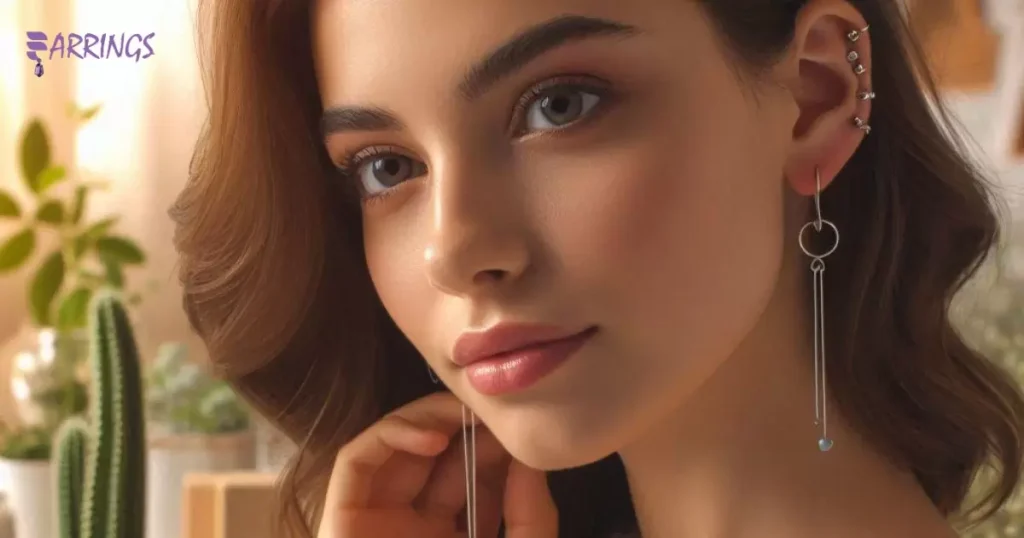
Discovering trendy cartilage earrings is a breeze with hypoallergenic options. Titanium and surgical stainless steel are lightweight choices that won’t irritate sensitive ears. For a touch of luxury, platinum or high-purity gold earrings are stylish and skin-friendly. These metals resist tarnish and suit even those with allergies.
Flexible materials like BioPlast or PTFE offer comfort and are perfect for healing piercings. Exploring fashion trends with hypoallergenic cartilage earrings ensures a stylish look without compromising on skin sensitivity. It’s a chic hoop or a subtle stud, these earrings provide a fashionable solution for everyone, making it easy to stay on trend with confidence.
Customization Options In Hypoallergenic Cartilage Earrings
You’re in luck with customization options. Opt for titanium or surgical stainless steel for durability without the itch. Niobium’s a solid pick too, known to play nice with sensitive skin. Platinum’s a fancy route if you’re feeling luxe.
Gold lovers, aim for 18k or 24k purity to keep reactions at bay. Need flexibility? PTFE or BioFlex got you covered, comfortable and irritation-free. Always check for nickel content, a potential trigger. Dive into the world of hypoallergenic cartilage earrings options aplenty, no compromises.
Potential Risks Of Non-Hypoallergenic Cartilage Earrings
Non-hypoallergenic cartilage earrings can pose risks for sensitive skin. Some metals, like nickel, commonly found in non-hypoallergenic earrings, can trigger skin reactions. Irritation, redness, and itching may follow, making the healing process challenging.
Wearing such earrings may delay the healing of cartilage piercings. Prolonged exposure to allergenic metals can lead to more severe complications, such as infections or prolonged inflammation. Opting for hypoallergenic materials, like titanium or surgical stainless steel, reduces these risks, promoting a smoother healing experience for cartilage piercings.
Tips For Individuals With Cartilage Earring Allergies
If you have a cartilage earring allergy, it’s essential to take steps to prevent irritation and ensure proper healing. Here are some tips to help individuals with cartilage earring allergies.
- Opt for earrings made from hypoallergenic materials such as surgical stainless steel, titanium, niobium, or gold. Avoid nickel-containing alloys, as nickel is a common allergen.
- Low-quality jewelry often contains nickel or other irritants. Invest in high-quality earrings to minimize the risk of an allergic reaction.
- Implant-grade materials, such as ASTM F136 titanium or ASTM F138 stainless steel, are known for their biocompatibility. They are less likely to cause allergic reactions.
- BioPlast and other biocompatible plastics can be suitable alternatives for individuals with metal allergies. Ensure they are of high quality and specifically designed for piercings.
- Look for earrings labeled as nickel-free or hypoallergenic. Some manufacturers provide certification to indicate that their products meet certain standards for hypoallergenic materials.
- Clean your earrings regularly with a mild solution of warm water and gentle, fragrance-free soap. This helps remove any accumulated dirt or bacteria that could contribute to irritation.
- Steer clear of harsh cleaning solutions or alcohol, as they can dry out the skin and exacerbate irritation.
Top Brands Offering Hypoallergenic Cartilage Earrings
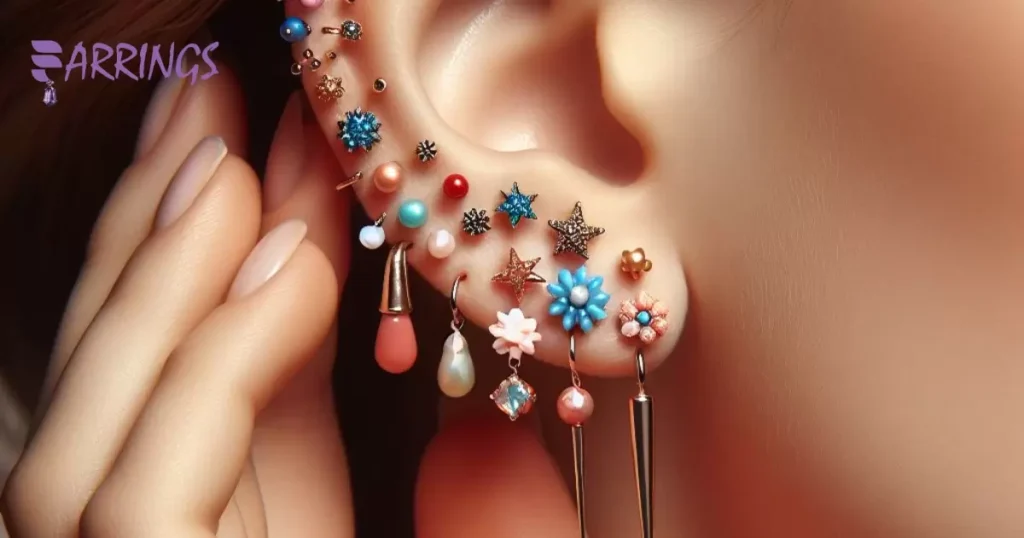
Top brands have you covered. Opt for titanium earrings they’re lightweight and won’t irritate your skin. Surgical stainless steel is another smart choice durable and resistant to corrosion. Brands like Blomdahl and Tini Lux offer stylish options in these materials.
Niobium earrings are known for being gentle on sensitive skin, and platinum pieces add a touch of luxury. If you prefer gold, go for higher purity like 18k or 24k to avoid allergies. PTFE and BioPlast earrings, from brands like BioFlex, provide flexibility and biocompatibility for comfortable wear.
Experiences With Hypoallergenic Cartilage Earrings
Switching to hypoallergenic cartilage earrings was a game-changer for my sensitive ears. Titanium earrings proved lightweight and irritation-free. No more redness or itching, just comfortable style. Surgical stainless steel worked wonders too durable and no reactions.
Trying niobium brought relief, a corrosion-resistant choice. Platinum added a touch of luxury, remaining gentle on the skin. Opting for higher purity gold ended the alloy-triggered allergies. BioPlast earrings, flexible and gentle, also proved soothing for sensitive ears. Making the switch made my ear-piercing experience a breeze, with no compromise on style or comfort.
A Guide To Hypoallergenic Cartilage Earrings?
Choosing hypoallergenic cartilage earrings is crucial for sensitive ears. Opt for titanium or surgical stainless steel they’re durable and won’t irritate your skin. Niobium and platinum are solid alternatives known for being gentle. If you fancy gold, go for higher purity like 18k or 24k to dodge potential allergies.
PTFE, a flexible plastic, and BioPlast or BioFlex are good non-metal choices. Always check for nickel content best avoided to sidestep common allergens. When uncertain, seek advice from a piercer or dermatologist to find the best fit for your skin. Your comfort matters most!
Gold And Silver Hypoallergenic Alternatives For Cartilage Jewelry
Consider gold and silver alternatives. Opt for 18k or 24k gold it’s purer and less likely to trigger allergies. Surgical stainless steel is durable and won’t corrode, making it a solid choice. Titanium, another light option, is corrosion-resistant and well-tolerated. A touch of luxury, go for platinum it’s resistant to tarnish and kind to sensitive skin.
Keep an eye on nickel content, a common allergen, and steer clear of lower karat gold. Materials like PTFE, BioPlast, or BioFlex provide flexible and bio-friendly options, ensuring comfort for healing piercings. Always check product descriptions to confirm suitability for sensitive skin.
Hypoallergenic Cartilage Earrings For Every Occasion
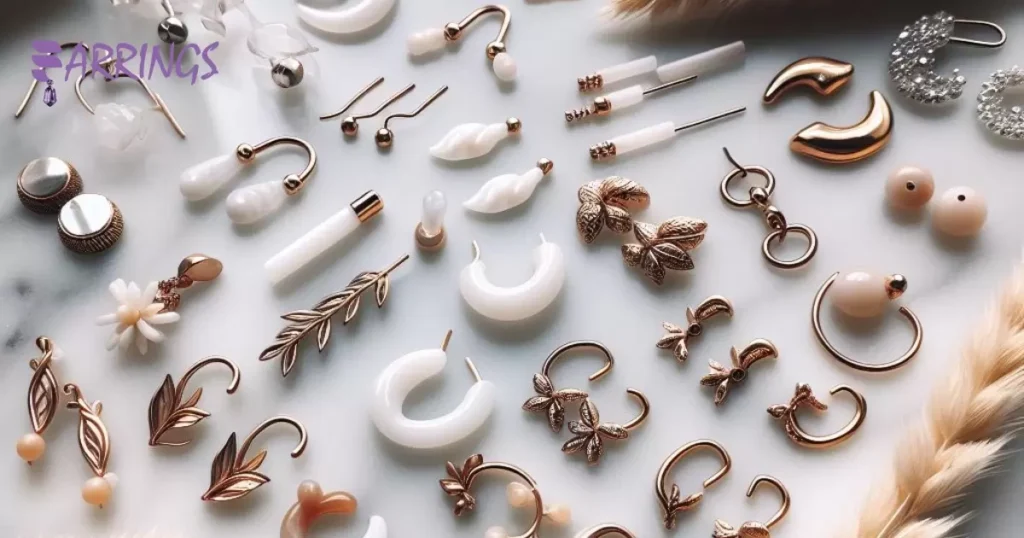
Looking for cartilage earrings that won’t irritate your ears? Opt for hypoallergenic materials like titanium or surgical stainless steel. These metals are kind to sensitive skin, making them perfect for everyday wear or special occasions. Platinum and high-purity gold are classy choices if you prefer a touch of elegance.
A flexible and biocompatible alternative, consider BioPlast or BioFlex. These materials cater to extreme sensitivities, ensuring comfort during the healing process. Always check product descriptions for nickel content, a common allergen, and consult with a piercer or dermatologist for personalized advice.
Hypoallergenic Glass Cartilage Earrings
Glass cartilage earrings are a solid pick for sensitive ears. They’re hypoallergenic, steering clear of irritating metals. Opt for borosilicate or fused glass varieties for top-notch skin-friendliness. Titanium, surgical steel, and niobium are also good choices, known for their low allergy risks.
If you prefer flexibility, BioPlast or BioFlex materials won’t disappoint. Always read product details to ensure your earrings are nickel-free, a key factor in avoiding skin troubles. In the quest for stylish, irritation-free cartilage accessories, these materials lead the way.
Cartilage Earring
Cartilage earrings are a stylish choice for unique piercings. They fit in the cartilage of the ear, not the earlobe. These earrings come in various designs like hoops, studs, and cuffs. They are made from materials like stainless steel, titanium, and gold. Many people choose these earrings for their durability and trendy look.
They are ideal for those with sensitive ears since they can be hypoallergenic. This means they are less likely to cause irritation or allergic reactions. Choosing high-quality cartilage earrings can make them comfortable to wear daily. They are also available in different sizes to suit personal preferences.
Piercing Earrings Cartilage
Piercing earrings for cartilage are popular for their unique look. They are designed to be worn on the cartilage of the ear. These earrings come in various styles like studs, hoops, and cuffs. Cartilage piercings often use small, sleek designs to fit the ear’s shape. This type of earring can add a stylish touch to any outfit.
Choosing the right piercing earrings is key for comfort and safety. Hypoallergenic materials are best to avoid irritation. Surgical steel and titanium are common choices. Be sure to follow aftercare instructions to keep the piercing clean. Proper care helps prevent infection and ensures the piercing heals well.
Cartilage Earrings Sensitive Ears
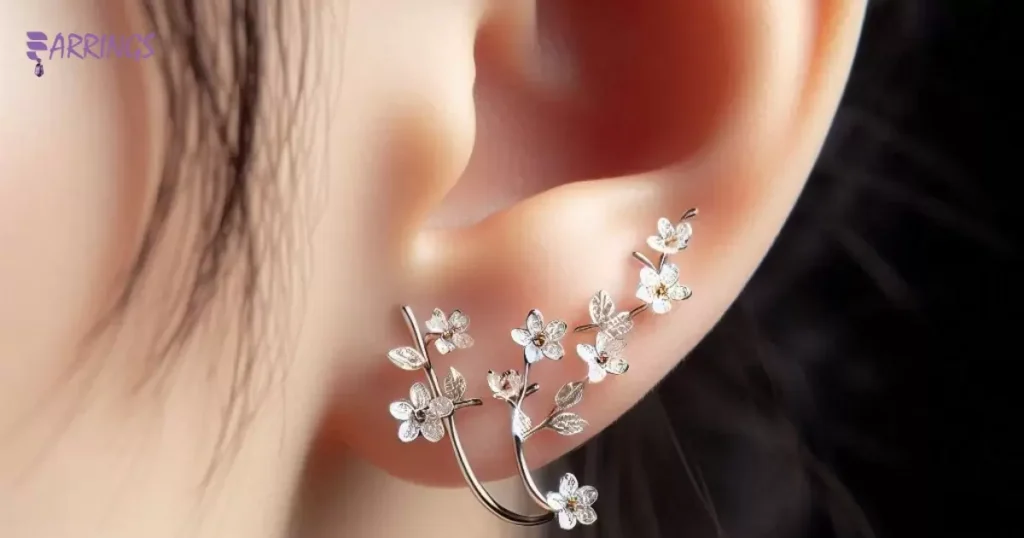
Cartilage earrings for sensitive ears need special care. They should be made from hypoallergenic materials like titanium or surgical steel. These materials reduce the risk of irritation and allergic reactions. Nickel-free options are best for comfort.
It is wise to choose earrings from reputable brands known for quality. When shopping, check if the earrings are labeled as hypoallergenic. This helps ensure they are gentle on your skin. Avoid earrings with heavy designs or intricate parts that may irritate. Simple and smooth designs often work best for sensitive ears.
Frequently Asked Questions
What Is Best Hypoallergenic Earrings?
Choose hypoallergenic earrings made of titanium, surgical stainless steel, or niobium for sensitive ears. Opt for higher purity gold or flexible materials like BioPlast. Check for nickel content and consult professionals for skin compatibility.
What Material Is Hypoallergenic Earrings?
Hypoallergenic earrings use skin-friendly materials like titanium, surgical steel, and niobium. Higher purity gold or platinum is safe for sensitive skin. Flexible options like PTFE or BioPlast suit extreme sensitivities.
What Earrings Are Best For Infected Cartilage?
Infected cartilage, go for hypoallergenic earrings like titanium or surgical stainless steel. They’re less likely to worsen the infection. Avoid nickel and opt for materials that won’t irritate your sensitive skin, like BioPlast or BioFlex.
Conclusion
Finding jewelry you can wear worry-free is life-changing for sensitive skin. Hypoallergenic cartilage earrings are the perfect solution. They are gentle, sustainable, and fashionable. Try them today to see happy, stylish ears.
Our natural buffalo bone earrings check all the boxes. They prevent irritation and infections beautifully. Enjoy versatile designs made ethically. Sport comfortable hypoallergenic jewelry always.
